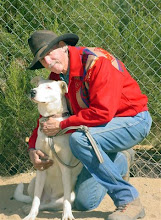The United States Department of Agriculture is responsible for rules and regulations pertaining to the food we eat in the U.S. The FDA and other agencies may be involved, but the USDA issues the regulations which are usually mandated by the national "Farm Bill", an act of Congress that is renewed every 6 years.
A few days ago the USDA issued its interim final rule for the mandatory country-of-origin labeling program ("COOL") that will become effective 30 SEP 2008. This rule covers muscle cuts of beef, ground beef, veal, lamb, chicken, goat, pork, perishable agricultural commodities including fresh and frozen fruits and vegetables and other commodities. Records will have to be kept by importers and suppliers as to the origin of these commodities.
Food service establishments such as restaurants are exempt from keeping records as are retail stores, but the suppliers to these establishments will be required to keep country-of-origin records for one year on covered, imported commodities. USDA will conduct a 6-month education and outreach program starting 01 OCT 2008 to help the food industry comply with the law. Of course, rules and regulations-type materials are already available for people to study.
This is a very controversial law with many ag producers and food processors and suppliers against it because of the significant cost of record keeping (added manpower, data storage, etc.) and the possibility of damage to the reputation of certain commodities and trade agreements. Others are for it saying we need a better, faster way to trace back food borne illness when it is suspected of coming from other countries (e.g. the current problem with jalapenos from Mexico). Time will tell if it was the right thing to do or another example of not looking closely enough at possible consequences ("The Law of Unintended Consequences").
If the program goes forward as it appears it will, then the producers of the commodities will have the extra costs passed on to them in the form of lower paying prices at first. Then, as the production phase of ag adjusts their supply and prices, the consumer will ultimately pay the price in the form of higher food prices. There are no free lunches. We will all need to watch and learn what it is gaining us and costing us. You know, the old cost-benefit ratio. Only this time the benefit is the possibility of preventing more illness and saving more lives if we hold people accountable in the production and distribution of food. How do you feel about COOL?
Saturday, August 9, 2008
Subscribe to:
Post Comments (Atom)

No comments:
Post a Comment